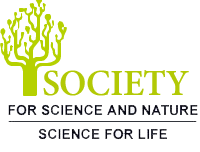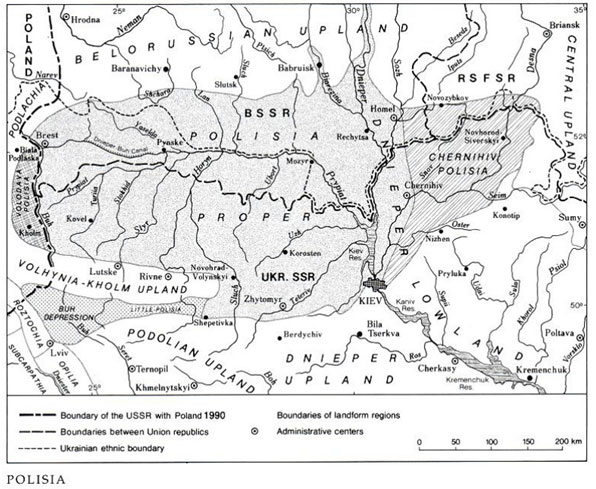Department of Marketing, Transfer of Innovations and Economic Studies,
Institute of Irrigated Agriculture of NAAS, Naddniprianske, Kherson, Ukraine
Corresponding author email: pavel.likhovid@gmail.com
Article Publishing History
Received: 30/10/2020
Accepted After Revision: 18/12/2020
Reference evapotranspiration is an important index for deep evaluation of climate conditions in climatology and irrigation requirements in agriculture. Current standard method of Penman-Monteith supported by Food and Agricultural Organization, FAO has proved its high reliability and accuracy in most areas of the world. However, very often it is impossible to derive reference evapotranspiration using the mentioned method because of lack of some necessary data for accurate computation. The goal of the study was to derive the reference evapotranspiration in Ukrainian Polisia for the warm period of year by the air temperature as the only input required for the calculation through the creation of regression equations, which were developed based on the linear regression analysis at p<0.05 of 488 meteorological samples of the reference evapotranspiration in the area of the study calculated by the standard FAO method in ET0 Calculator software. The results of the study proved the possibility of rough and fast estimation of the reference evapotranspiration in Ukrainian Polisia using air temperature only with the mean average percentage error (MAPE) of the computation at the level of 30.10%. The values of MAPE ranged by the oblasts of the area of the study within 26.03–29.34% with the minimum error for Chernihiv, and the maximum – for Lutsk (Volyn) oblasts of Ukraine.
Air Temperature, Penman-Monteith Alternative, Reference Evapotranspiration, Regression Analysis, Ukrainian Polisia.
Lykhovyd P. Reference Evapotranspiration Calculation in the Zone of Ukrainian Polisia Using Air Temperature. Biosc.Biotech.Res.Comm. 2020;13(4).
Lykhovyd P. Reference Evapotranspiration Calculation in the Zone of Ukrainian Polisia Using Air Temperature. Biosc.Biotech.Res.Comm. 2020;13(4). Available from: https://bit.ly/3maTXrb
Copyright © Lykhovyd This is an open access article distributed under the terms of the Creative Commons Attribution License (CC-BY) https://creativecommns.org/licenses/by/4.0/, which permits unrestricted use distribution and reproduction in any medium, provide the original author and source are credited.
INTRODUCTION
Reference evapotranspiration (ET0) is a valuable index for determination of demands for irrigation water and climate parameters (Hargreaves, 1994). The technique of ET0 estimation embraces direct (mainly lysimetric) and indirect methods. Indirect methods are represented by a set of formulas, based on empirical description of physical processes, which take place in the system “plant-soil-atmosphere” and are connected with transport of water during physiological processes in plants in the concrete weather conditions. The most wide-spread indirect method, which is generally accepted as the standard worldwide, is the method of Penman-Monteith (Sentelhas et al., 2010). Notwithstanding the fact that this method was proved to be the most reliable in the estimation of ET0, it is not possible to apply it in every study due to the difficulties, connected with sophisticated computations and huge amount of the input data required to obtain a reliable result.
FAO provides software named ET0 Calculator, which is aimed to simplify the process of reference evapotranspiration assessment by Penman-Monteith method; however, it is still advisable to provide all the inputs to get the correct estimation, although it is possible to come to nothing more than the maximum and minimum air temperature to perform the rough assessment (Raes & Munoz, 2009). The previous study of Lykhovyd, (2020) has proved that the idea is not only theoretically interesting, but is of practical value and provides a good chance for agricultural producers to estimate and forecast ET0 in the concrete zones using fast and convenient formula of K×T (K – coefficient, mm/°C; T – air temperature, °C, (Lykhovyd, 2020).
The goal of the study is to provide an alternative method for local ET0 computation using the most common weather index – air temperature – as the only input for the reference evapotranspiration estimation in the zone of Ukrainian Polisia.
MATERIAL AND METHODS
Polisia is one of the largest forest zones of Europe and it is located in the south-western part of the Eastern-European Lowland, or in the Polisia Lowland. Ukrainian Polisia is the part of the natural zone, which occupies mainly Northern Ukraine, namely, Volyn (Lutsk), Rivne, Zhytomyr, Kyiv and Chernihiv Oblasts (Internet Encyclopedia of Ukraine). Therefore, the main big cities and meteorological stations situated in the zone are in Lutsk, Rivne, Zhytomyr, Kyiv and Chernihiv (Fig. 1).
Figure 1: Ukrainian Polisia on the map of Nothern Ukraine, Eastern Poland, Southern Belorussia, and Western Russia (Internet Encyclopedia of Ukraine).
The study was based on the long-term meteorological data on monthly maximum, mean, minimum air temperature and wind speed during the warm period (average air temperature ≥0°C), which were obtained from Lutsk, Rivne, Zhytomyr, Kyiv and Chernihiv hydrometeorological stations for the period of January 2010 – October 2020. The mentioned stations were chosen as the key ones to represent the zone of Ukrainian Polisia. The total number of data inputs was: Volyn (Lutsk) oblast – 76; Rivne – 105; Zhytomyr – 102; Kyiv – 105; Chernihiv – 100, Ukrainian Polisia overall – 488. Meteorological indices were used as the inputs for calculation of the reference evapotranspiration using Penman-Monteith equation in ET0 Calculator software (the developer – FAO UNO). The pairs of “mean air temperature – ET0” were formed and processed by linear regression within Biostat v7 software at p<0.05. To evaluate the accuracy of the ET0 computation using the developed regression models the values of mean absolute percentage error (MAPE) and coefficient of determination (Predicted R2) were estimated for each zone (Moreno et al., 2013).
RESULTS AND DISCUSSION
As a result of regression analysis, six models for reference evapotranspiration computation based on the air temperature only were developed, including not only the model for Ukrainian Polisia overall, but for every oblast of this zone (Table 1).
Table 1. Reference evapotranspiration calculation for Ukrainian Polisia and its sub-zones using air temperature (AT), ± MAPE
| Name of the zone | Calculation equation (Predicted R2) |
| Lutsk (Volyn) oblast | 0.3551×AT±29.34% (0.9432) |
| Rivne oblast | 0.4122×AT±28.18% (0.9255) |
| Zhytomyr oblast | 0.2799×AT±26.83% (0.9484) |
| Kyiv oblast | 0.3179×AT±26.79% (0.9459) |
| Chernihiv oblast | 0.3508×AT±26.03% (0.9391) |
| Ukrainian Polisia | 0.3410×AT±30.10% (0.9235) |
The values of MAPE and Predicted R2 testify about acceptable accuracy of the developed regression models for fast and rough estimation of the reference evapotranspiration in the zone of Ukrainian Polisia and some Northern oblasts of Ukraine. The best accuracy was obtained for Zhytomyr, Kyiv, and Chernihiv oblasts, while the overall result for Ukrainian Polisia is slightly worse in accuracy. The highest reference evapotranspiration with accordance to the regression model coefficients is usual for Rivne oblast (mainly owing to strong winds in the region), while the least evapotranspiration is associated with Zhytomyr oblast (light winds and favorable temperature regime is a feature of this region).
Our study is just another option among the available ones for reference evapotranspiration estimation in case of lack of required for full Penman-Monteith equation meteorological data. While some scientists look upon remote sensing technologies as a relevant and most applicable alternative in this case (Cammaleri & Ciraolo, 2013), others try to apply weather forecasts data instead of the data derived directly from meteorological stations (Er-Raki et al., 2010), or are looking for the simpler available method testing the accuracy in comparison with Penman-Monteith one (Tabari et al., 2013), our study was directed on simplification of the original ET0 calculation equation by the methods of mathematical statistics. The application of mathematical statistics in the form of artificial neural networks has been proved to be quite effective for the purpose (Feng et al., 2016).
Although neural networks are considered to be the best option in such cases, providing the highest accuracy in life sciences (Lykhovyd, 2018), our study was focused on much simpler technique of linear regression analysis, which might be less accurate but more practical as it is possible to get the result in the form of an equation. Besides, it has been proved by the results of our previous study on the reference evapotranspiration estimation in the South of Ukraine that the accuracy of such an approach is sufficient enough to be used in science and practice of irrigated agriculture for rough estimation and forecast of reference evapotranspiration (Lykhovyd, 2020).
CONCLUSION
It is possible to assess reference evapotranspiration in the zone of Ukrainian Polisia by the formula ET0 = 0.3410×AT. The accuracy of the method is 30.10%. The mentioned model is recommended for reference evapotranspiration estimation in the zone both in practical and scientific purposes. The model is going to be used in the complex research aimed to provide general ET0 computation formula for Ukraine. Further studies on the enhancement of the model quality are also projected.
Conflict of Interest Statement: There is no conflict of interest regarding the publication of this paper.
REFERENCES
Cammalleri C and Ciraolo G (2013) A simple method to directly retrieve reference evapotranspiration from geostationary satellite images International Journal of Applied Earth Observation and Geoinformation Vol 21 Pages 149-158
Er-Raki S A Chehbouni S Khabba V Simonneaux L Jarlan A Ouldbba JC Rodriguez and Allen R (2010) Assessment of reference evapotranspiration methods in semi-arid regions: can weather forecast data be used as alternate of ground meteorological parameters? Journal of Arid Environments Vol 74 No 12 Pages 1587-1596
Feng Y N Cui L Zhao X Hu and Gong D (2016). Comparison of ELM, GANN, WNN and empirical models for estimating reference evapotranspiration in humid region of Southwest China Journal of Hydrology Vol 536 Pages 376-383.
Hargreaves GH (1994). Defining and using reference evapotranspiration Journal of Irrigation and Drainage Engineering Vol 120 No 6 Pages 1132-1139
Internet Encyclopedia of Ukraine URL: http://www.encyclopediaofukraine.com/display.asp?linkpath=pages%5CP%5CO%5CPolisia.htm
Lykhovyd PV (2018) Prediction of sweet corn yield depending on cultivation technology parameters by using linear regression and artificial neural network methods Biosystems Diversity Vol 26 No 1 Pages 11-15.
Lykhovyd PV (2020) Assessment of reference evapotranspiration in the South of Ukraine by air temperature International Journal on Emerging Technologies Vol 11 No 5 Pages 278-282
Moreno JJM AP Pol AS Abad and Blasco BC (2013). Using the R-MAPE index as a resistant measure of forecast accuracy Psicothema Vol 25 No 4 Pages 500-506
Raes D and Munoz G (2009). The ET0 Calculator, Reference Manual Version 3.1. Food and Agricultural Organization of the United Nations (FAO) Rome
Sentelhas PC TJ Gillespie and Santos EA (2010) Evaluation of FAO Penman–Monteith and alternative methods for estimating reference evapotranspiration with missing data in Southern Ontario, Canada Agricultural Water Management Vol 97 No 5 Pages 635-644
Tabari H ME Grismer and Trajkovic S (2013) Comparative analysis of 31 reference evapotranspiration methods under humid conditions Irrigation Science Vol 31 No 2 Pages 107-117



